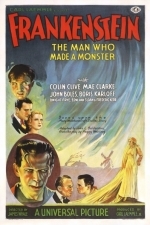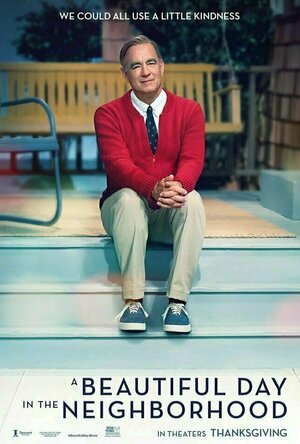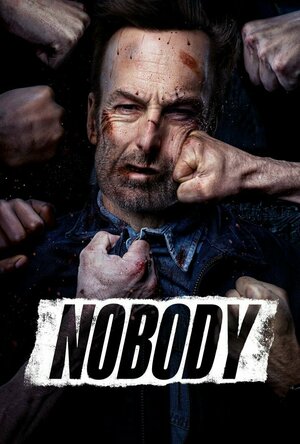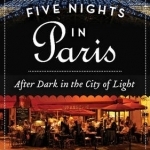
Five Nights in Paris: After Dark in the City of Light
Book
The preeminent expat writer on Paris and author of The Most Beautiful Walk in the World takes you on...
Matthew Krueger (10051 KP) rated Frankenstein (1931) in Movies
May 20, 2020
The plot: This iconic horror film follows the obsessed scientist Dr. Henry Frankenstein (Colin Clive) as he attempts to create life by assembling a creature from body parts of the deceased. Aided by his loyal misshapen assistant, Fritz (Dwight Frye), Frankenstein succeeds in animating his monster (Boris Karloff), but, confused and traumatized, it escapes into the countryside and begins to wreak havoc. Frankenstein searches for the elusive being, and eventually must confront his tormented creation.
It Was named the 87th greatest movie of all time on 100 Years... 100 Movies. The line "It's alive! It's alive!" was ranked as the 49th greatest movie quote in American cinema. The film was on the ballot for several of AFI's 100 series lists, including AFI's 10 Top 10 for the sci-fi category, 100 Years... 100 Movies (10th Anniversary Edition), and twice on 100 Years... 100 Heroes and Villains for both Henry Frankenstein and the Monster in the villains category.
The film was ranked number 56 on AFI's 100 Years... 100 Thrills, a list of America's most heart-pounding movies. It was also ranked number 27 on Bravo's 100 Scariest Movie Moments. Additionally, the Chicago Film Critics Association named it the 14th scariest film ever made.
Its a classic excellent phenomenal monster horrror movie.
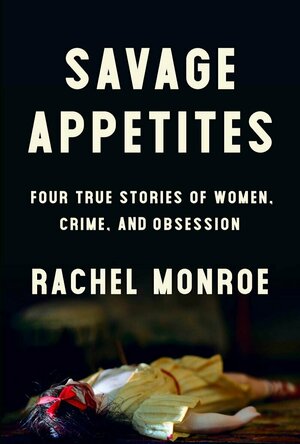
Savage Appetites: Four True Stories of Women, Crime, and Obsession
Book
A provocative and original investigation of our cultural fascination with crime, linking four...
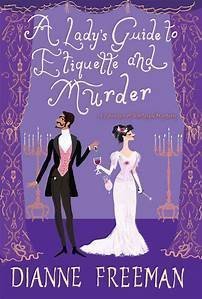
A Lady’s Guide to Etiquette and Murder
Book
In this exciting historical mystery debut set in Victorian England, a wealthy young widow encounters...
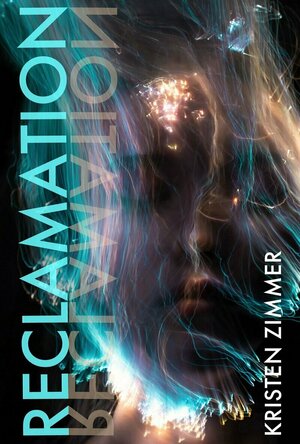
Reclamation (Dark Horse #1)
Book
This is your future. The United States of America has been gone for over a century. In its...
Dystopian Science Fiction LGBTQ+
Bob Mann (459 KP) rated A Beautiful Day in the Neighborhood (2019) in Movies
Dec 13, 2019
Who WAS Fred Rogers? Based on a true story this movie very quickly makes you realise that Fred Rogers, who died in 2003, was an American legend. This is supported by the GLOWING reviews here on IMDB by US viewers. Rogers was a children's TV presenter that used puppets and song to help children work through their fears and psychological issues. I suspect, like me, most Brits would say "WHO?" (Just as if a 60's born Brit like me saying "Let's look through the arched window" will similarly get a "WHAT?" from nearly all Americans!)
Here the story revolves not around Fred (Tom Hanks) helping a child with issues, but with Fred's fixation with 'Esquire' journo Lloyd Vogel (Matthew Rhys), who is fighting his own demons of anger, resentment and pain. For Lloyd is struggling not only with his feelings about fatherhood, with the normal strains that is placing on the relationship with wife and mother Andrea (Susan Kelechi Watson), but also with the reemergence on the scene of his estranged and hard-drinking father Jerry (Chris Cooper).
The movie starts (and continues) with model sets reminiscent of the brilliantly barmy "Welcome to Marwen" and (the rather more subtle) "Game Night". Fun is had with matchbox-car freeways and planes flying off and clunking down on model runways.
We join Mr Rogers on set filming his series: and the movie sloooooows to match Rogers' leisurely pace. This was a movie I went into completely blind (which is unusual for me): I knew precisely zip about it. No knowledge of Rogers. No knowledge of the story. No sight of the trailer. Nothing. So these opening scenes were a real "WTF" moment as my brain struggled to work out what the story was all about.
There was undeniably something creepy about seeing the saintly Fred Rogers engaging with sick and vulnerable children. And I realised just what damage the likes of the convicted-paedophiles Jimmy Saville, Stuart Hall and Rolf Harris have done to my suspicions against all such entertainers. I feared - without any background knowledge on Rogers - that the story would take a darker turn. But no! That's not the story....
For as mentioned earlier, this is the story of Lloyd. And it's a relatively simple and linear story of familial stress that we've seen in movies throughout the decades. Whether you will buy into this story-within-the-story, or not, will flavour your overall enjoyment of the film.
Many who are into analysis and 'talking treatments' will - I think - appreciate the script. But I personally didn't really warm to any of the players - other than Rogers - so this was a negative for me. And I found the pace so slow that I ended up a bit fidgety and bored moving into the second reel of the film. Two women got up and walked out at that point - - it was clearly not for them (this was a Cineworld "Unlimited" pre-release screening).
The third reel rather pulled it together again, and established an "It's a Wonderful Life" style of feelgood that I warmed to much more.
This is a movie I predict the Academy will love. And everyone loves Hanks already. Read the tea-leaves. It's a brilliant performance from Hanks in its stillness and quietness.
No more so than in one particular scene....
This is the follow up movie from Marielle Heller to the impressive "Can You Ever Forgive Me?". And this particular scene - let's call it the "Anti-When-Harry-Met-Sally" moment - is a massively brave and striking piece of cinema.
It's truly extraordinary and worth the price of a ticket alone.
In summary, I enjoyed this movie, primarily for watching the master Hanks at work. The pacing for me was somewhat off though. But I can't be overly critical of such a warm-hearted movie. I predict you will see this and go home with a big dose of the warm-fuzzies.
See here for the full graphical review - https://bob-the-movie-man.com/2019/12/12/one-manns-movies-film-review-a-beautiful-day-in-the-neighborhood-2019/

Pronunciation: Minute of Speech – Tarle Speech
Podcast
Tarle Speech and Language was founded in 2005 by Jennifer Tarle in order to empower individuals at...

Abide - Christian Meditation
Health & Fitness and Medical
App
Abide is the #1 Christian meditation app to bring more peace and less stress into your daily life....
Sophia (Bookwyrming Thoughts) (530 KP) rated Daughter of Isis (Descendants of Isis #1) in Books
Jan 23, 2020
The first book in Kelsey Ketch's <em>Descendants of Isis</em> series is a book with very heavy romance.
Of course, I was highly aware of that upon reading the synopsis.
But I'm an absolute sucker for mythology of all kinds (This is why I am highly interested in debut author Heidi Helig's <em>The Girl From Everywhere</em>. I mean, <em>Hawaiian</em>. Saucer eyes RIGHT here! I intend on waiting until the book is published, though.) and I simply couldn't resist myself. So instead of moping about the possibility of a heavy romance, I replaced my "NUUU ROMANCE" hat with my "TOLERABLE ROMANTIC" hat (the caps are intentional), sat back with my tablet (after transferring the review copy from the computer), and just hoped Ketch would take me on an unforgettable journey.
Natti has just moved from London to a small town in California after her Grandmother's death, with her only clue in a necklace she inherited. Since the first day Natti starts at her new school, Seth O'Keefe starts pursuing her in the hopes of seducing her.
Plus, Tolerable Romantic (I'll stop capping my hats now) hat says it's not exactly love at first sight Natti is completely resistant to Seth's attempts at charming her from the beginning, even though she sort of succumbs to his charms eventually. At that point in time, however, I know each of the characters well enough and have a particular fondness for each of them (for the first in a series) that it isn't awkward at all.
Ketch writes the book in two views: Natti's and Seth's. Natti's comparison of British life to American life and big city to a small town is mildly hilarious (we totally do everything backward). Even though she would rather remain in England, she smoothly transitions into her new life after meeting Wanda, Kevin, and Jen and being tucked under their wings.
Also, she has a fire in her I kind of like.
I honestly feel having Seth's view works out in the book's favor; hearing from his point of view makes him a lot more human than he comes out as with the other Sons of Set: someone who worships the Egyptian god Set and spreads chaos in the world on his behalf, hoping to eventually come across a secret from the past. They also sound insane and just want to take over the world one woman at a time.
It basically puts him in an entirely different perspective for readers than simply reading what Natti thinks of him.
<div class="separator" style="clear: both; text-align: center;"><a style="margin-left: 1em; margin-right: 1em;" href="http://3.bp.blogspot.com/-kFwoMM-NvD4/VodHIVFyhoI/AAAAAAAAFqQ/y-lTjSgr4j0/s1600/perspective.gif"><img src="http://bookwyrmingthoughts.bookblog.io/wp-content/uploads/sites/317/2016/01/perspective.gif"; width="320" height="240" border="0" /></a></div>
<em>Daughter of Isis</em> is one of those books where I'll probably keep my Tolerable Romantic hat on for the entire series because the romance between Seth and Natti fits the story really well. The world Kelsey builds in a small town California where nearly everyone is under the thumb of the Sons of Set captivated me by the end of the book I can't wait to see what trials the couple will face in the future of the series.
<a href="https://bookwyrmingthoughts.com/review-daughter-of-isis-by-kelsey-ketc/"; target="_blank">This review was originally posted on Bookwyrming Thoughts</a>
Bob Mann (459 KP) rated Nobody (2021) in Movies
Jun 9, 2021
Positives:
- Bob Odenkirk is charismatically dull! His character could be compared with that of Christian Wolff in 2016's "The Accountant". But in that movie, Ben Affleck was just dull dull! Here Odenkirk brings his character to life in a truly wonderful and sparkly way.
- The movie is a hyper-violent but adrenaline-fuelled joy ride. There's a slight lull after the initial burglary, but then it's a downhill bobsleigh ride with no brakes from there to the end. It comes as no surprise that the writer, Derek Kolstad, is the guy behind the John Wick franchise. The script has moments of black comedy that made me laugh out loud a good few times.
- The editing here (by Evan Schiff and William Yeh) is very slick indeed, most noticeably so in the many fight scenes. The one on the bus could be pulled apart as a template for a film school lesson.
Negatives:
- I've very little to add here. Yes, it's a rather shallow story, but I found it a hugely entertaining rush of a movie. However the intensity of the violence will not be for everyone. The lady a few seats along from me had her hands over her eyes for at least 75% of the movie I reckon.
- I wasn't clear where the character played by RZA fitted into the mix. Having (post film) seen the cast list, I'm even more confused!
Additional notes:
- There is a post credit scene in this one, shortly into the end credits, so don't dive for the doors too quickly if you want to see it. That being said, it doesn't really make much sense (why are they doing this?) and it isn't particularly funny either. So if you did miss it, then don't sweat about it!
- This is a movie that I knew virtually nothing about on going into it. Which is the best way to see it. As such, it's worth NOT watching the trailer, and going in on that basis if you can.
Summary Thoughts on "Nobody": It's a pretty shallow plot.... but it's also bloody good fun! I expected this to follow the well worn road of classic "revenge" movies - like "Death Wish" or "Taken" - but was pleasantly surprised that it didn't. A better comparison might be Michael Douglas's "Falling Down", but with the central character having more heart.
There are lots of nods to sequences from other movies in here: "Home Alone" (for obvious reasons!); "Patriot Games" and "The Equalizer" came to my mind. And the finale reminded me strongly of the anarchic chaos of 2016's "Free Fire".
Intellectual it ain't. But provided you can stomach the Tom and Jerry style violence, and suspend your belief at the punishment Hutch can take without hospital treatment, then "Nobody" ticks all the boxes for a fun night out at the flicks.
(For the full graphical review, please check out the One Mann's Movies review here - https://bob-the-movie-man.com/2021/06/09/nobody-what-kevin-mcallister-did-once-all-grown-up/. There's also a new Tiktok channel at onemannsmovies. Thanks).
